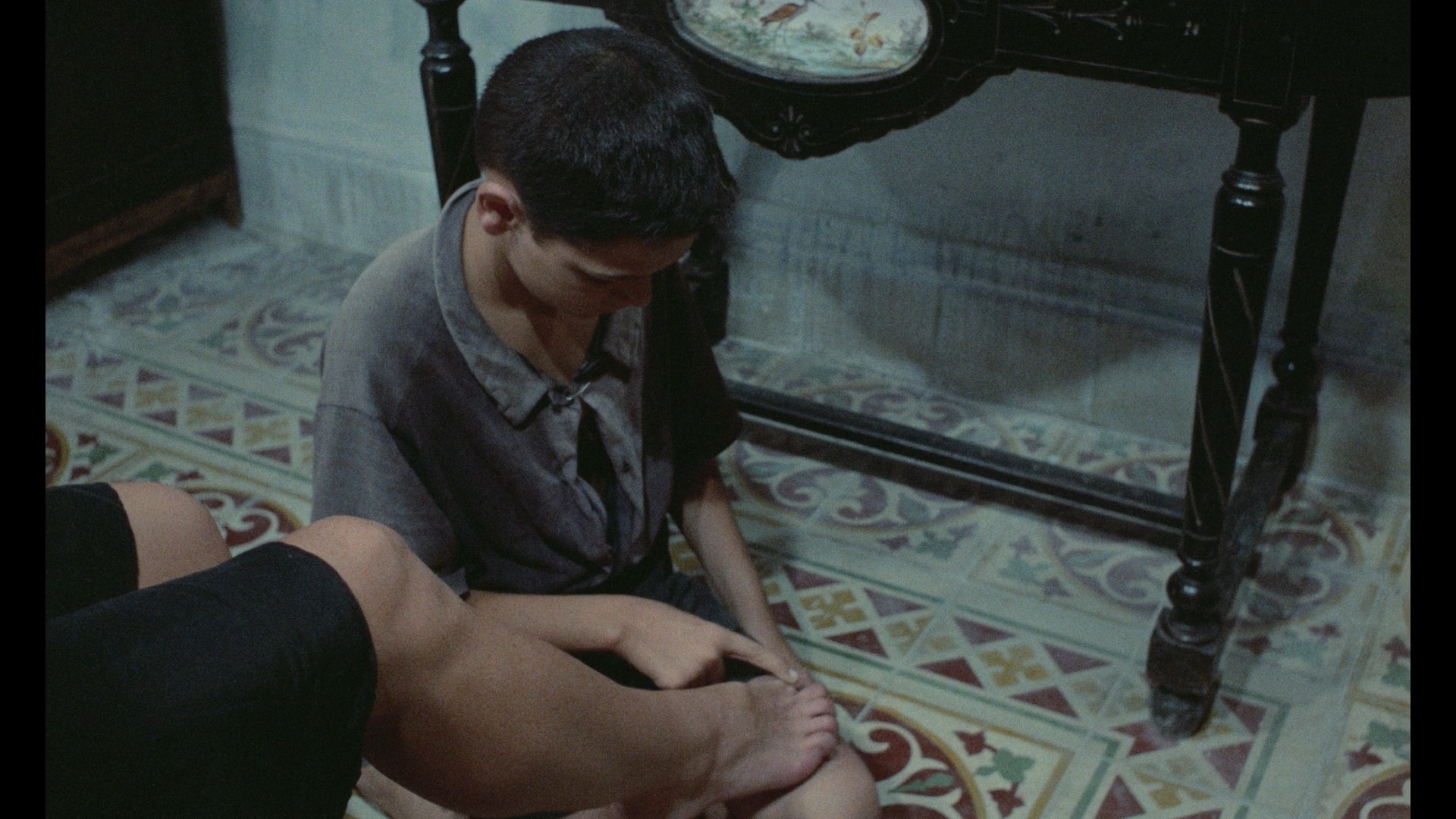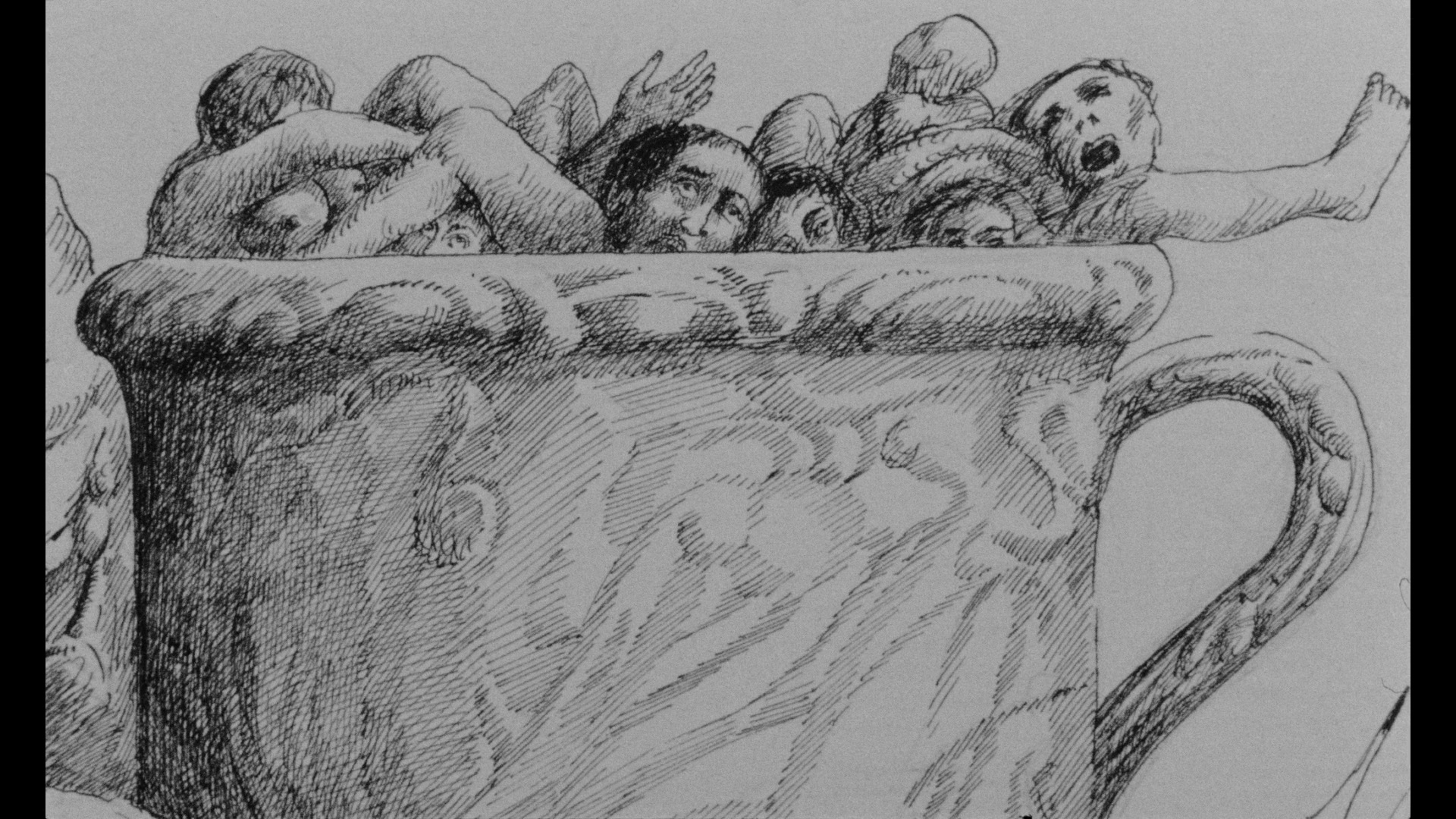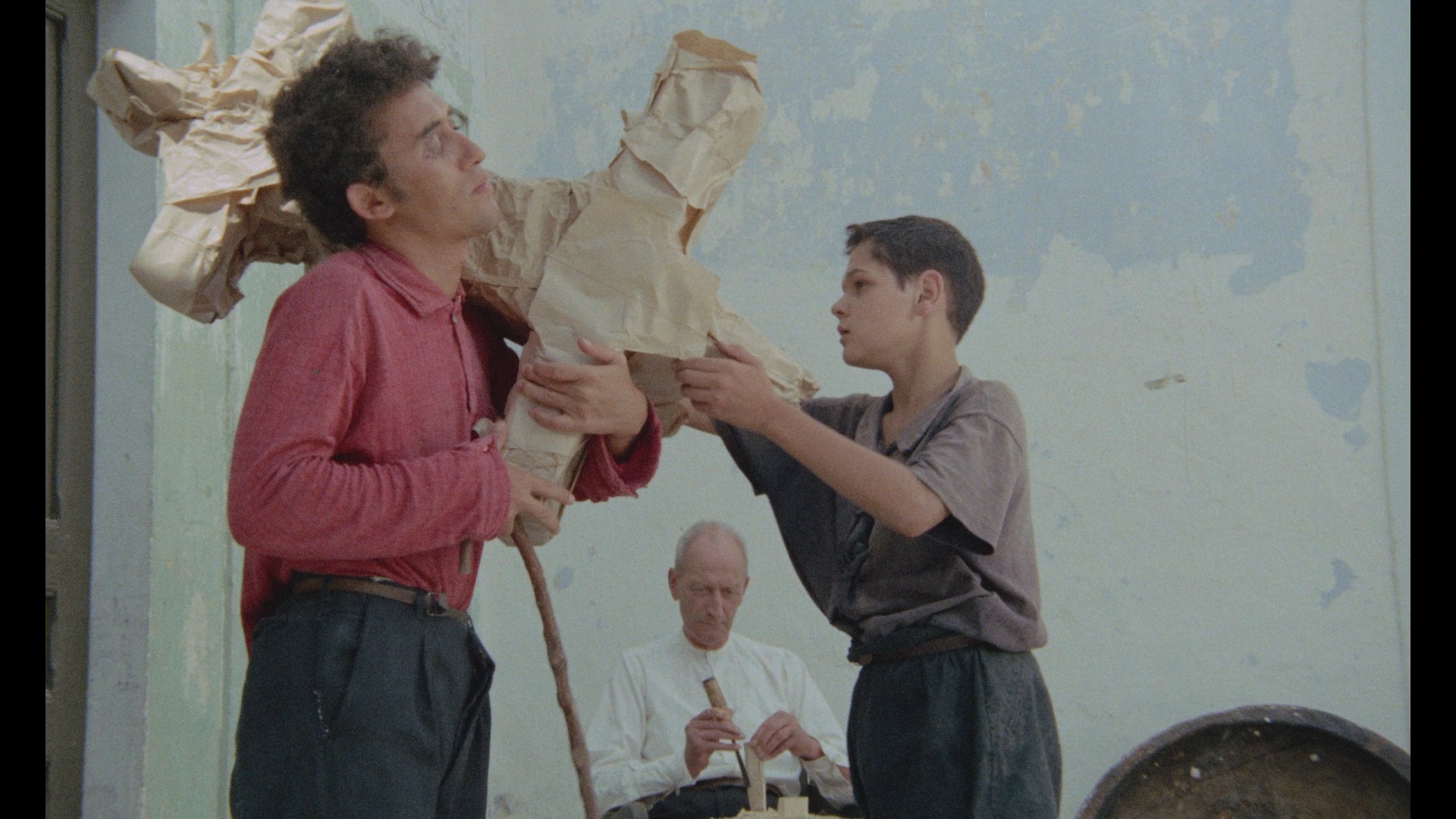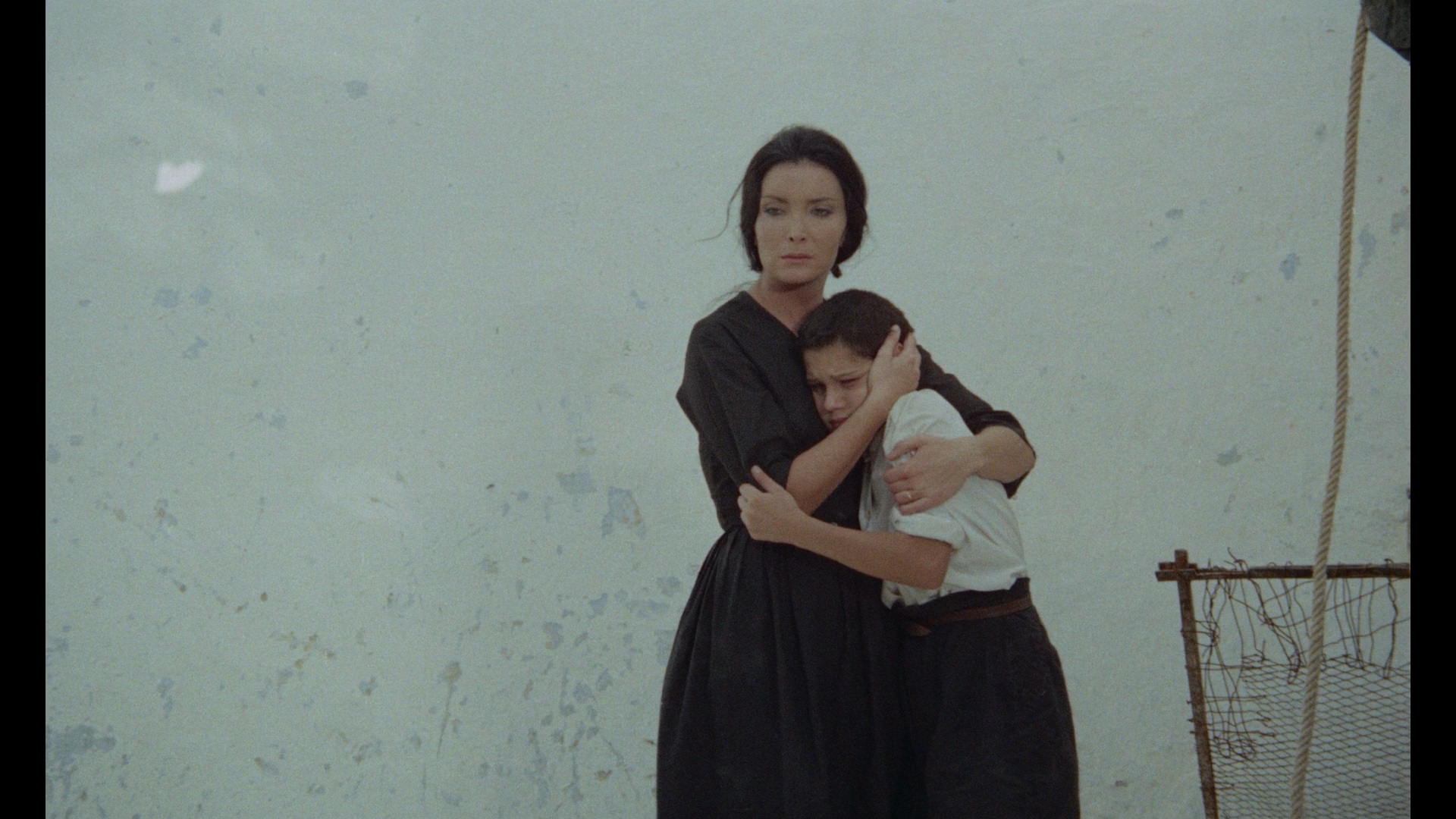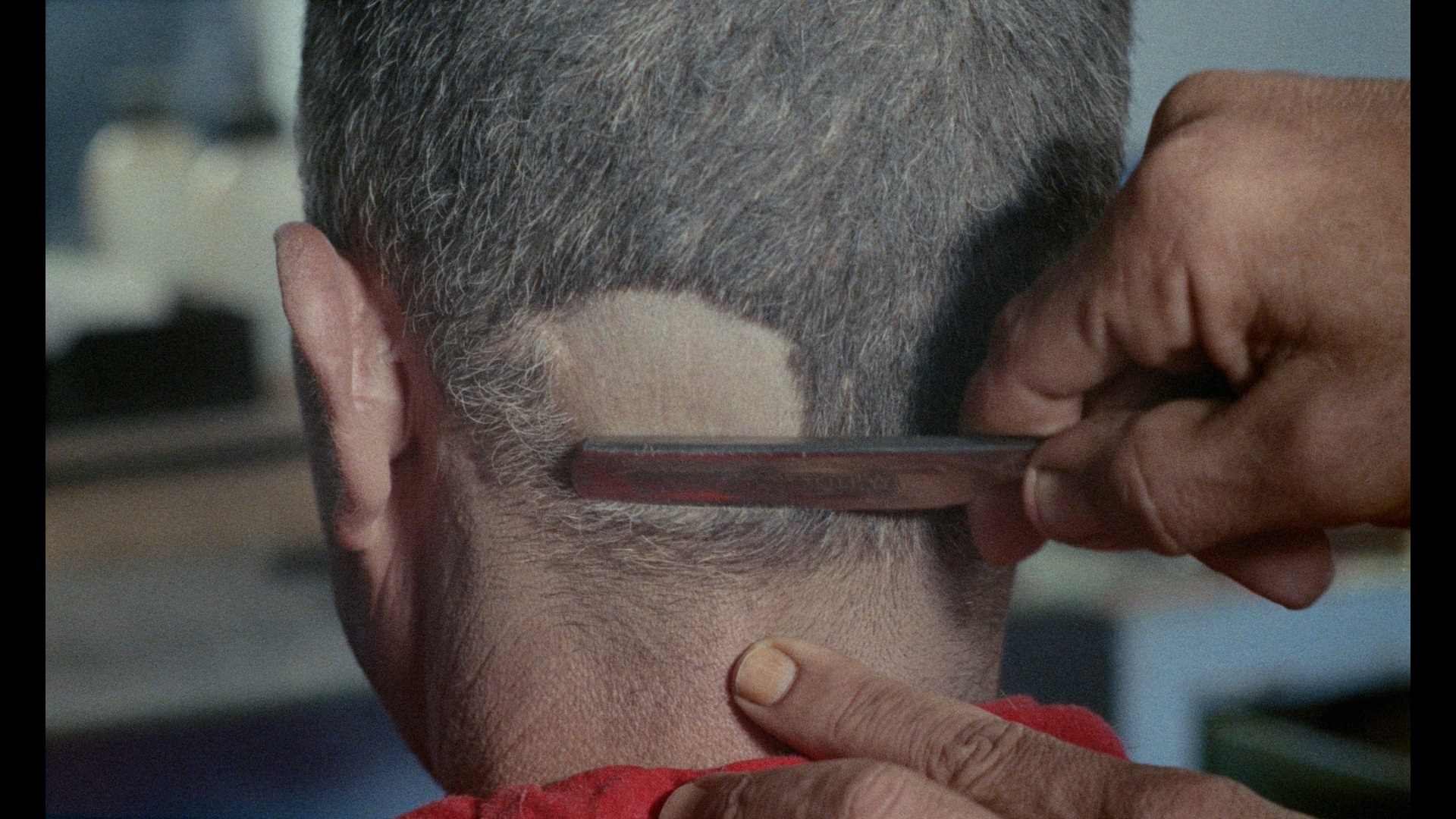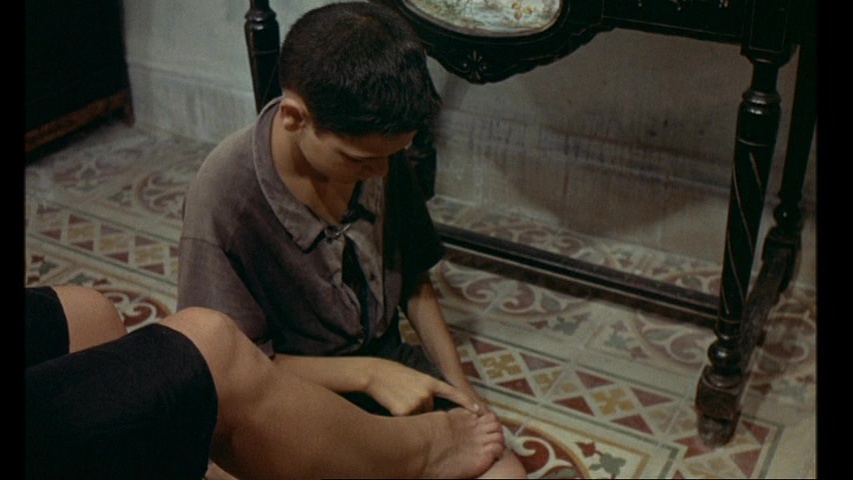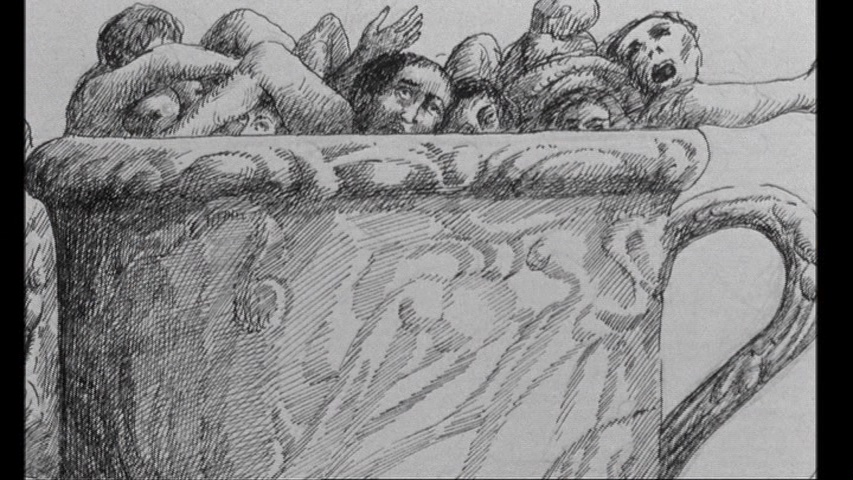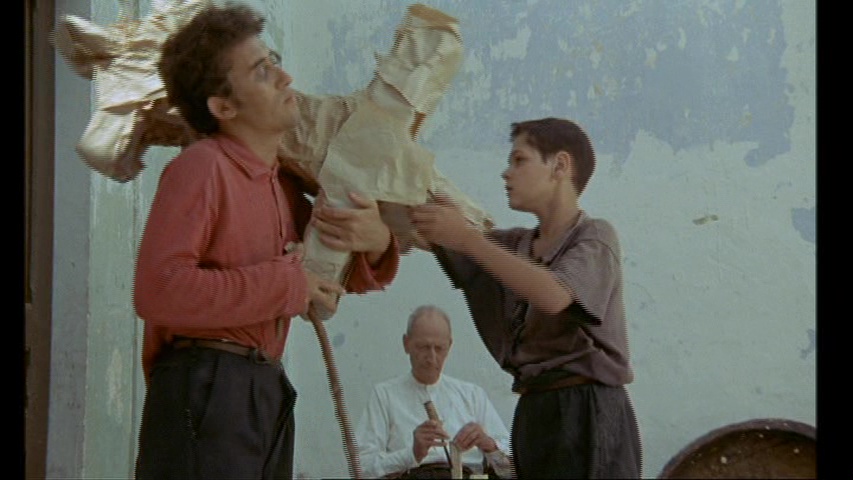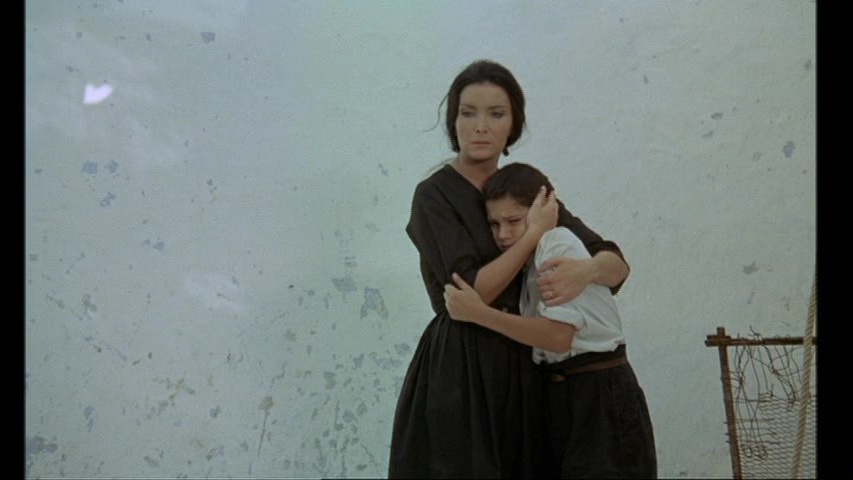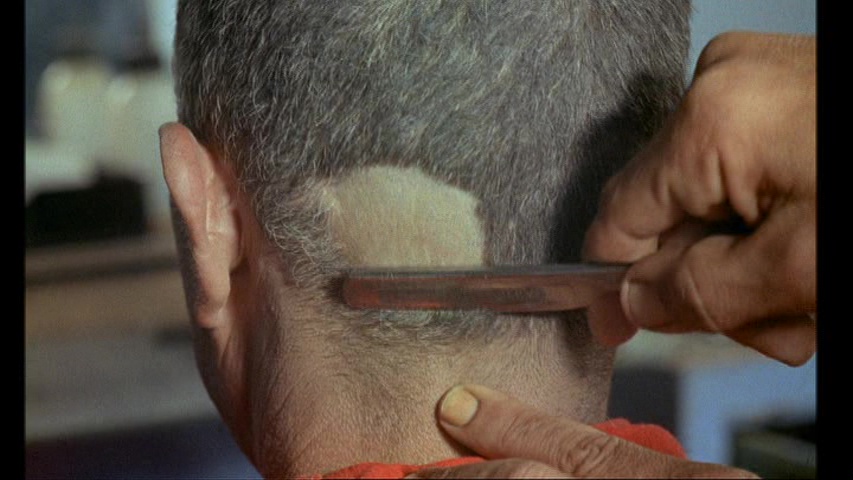>
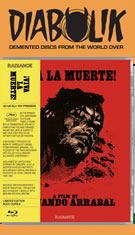
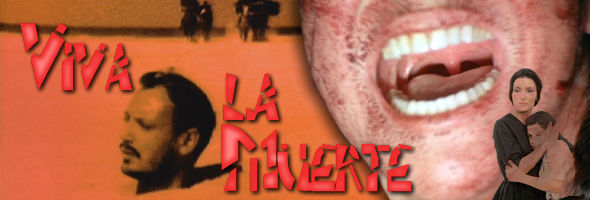
Color, 1970, 89 mins. 6 secs.
Directed by Fernando Arrabal
Starring Mahdi Chaouch, Nuria Espert
Radiance Films (Blu-ray) (US/UK R0 HD), Cult Epics (US R0 NTSC), Donau-Film (DVD) (Germany R0 PAL), Alterna Vision (DVD) (Japan R1 NTSC), Siren (DVD) (Australia R0 PAL) / WS (1.85:1) (16:9)
Along with the notorious 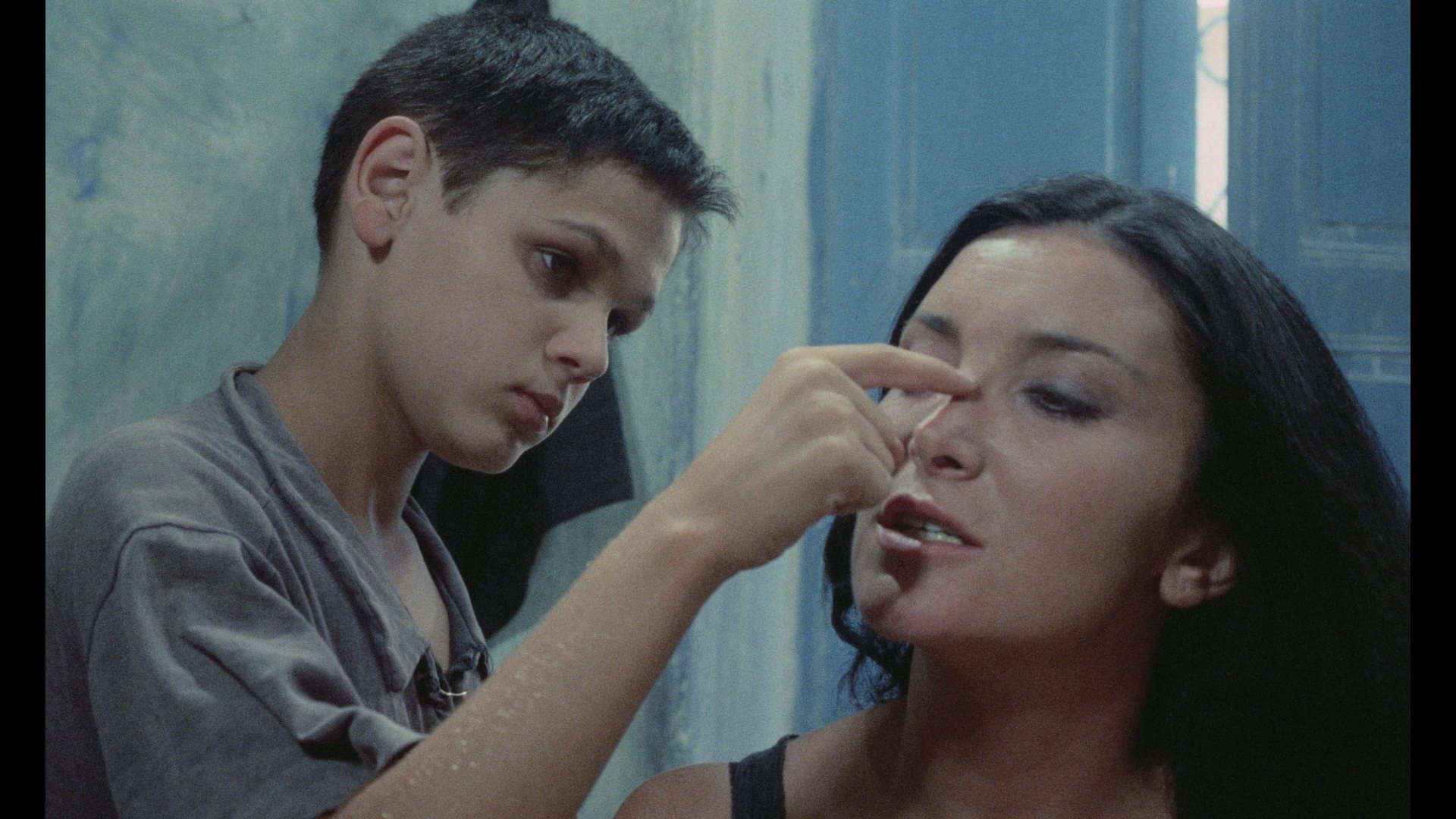 Alejandro Jodorowsky (El Topo) and animator Roland Topor (Fantastic Planet), the short-lived but scandalous "Panic Movement" in Mexico and Europe was begun by
Alejandro Jodorowsky (El Topo) and animator Roland Topor (Fantastic Planet), the short-lived but scandalous "Panic Movement" in Mexico and Europe was begun by 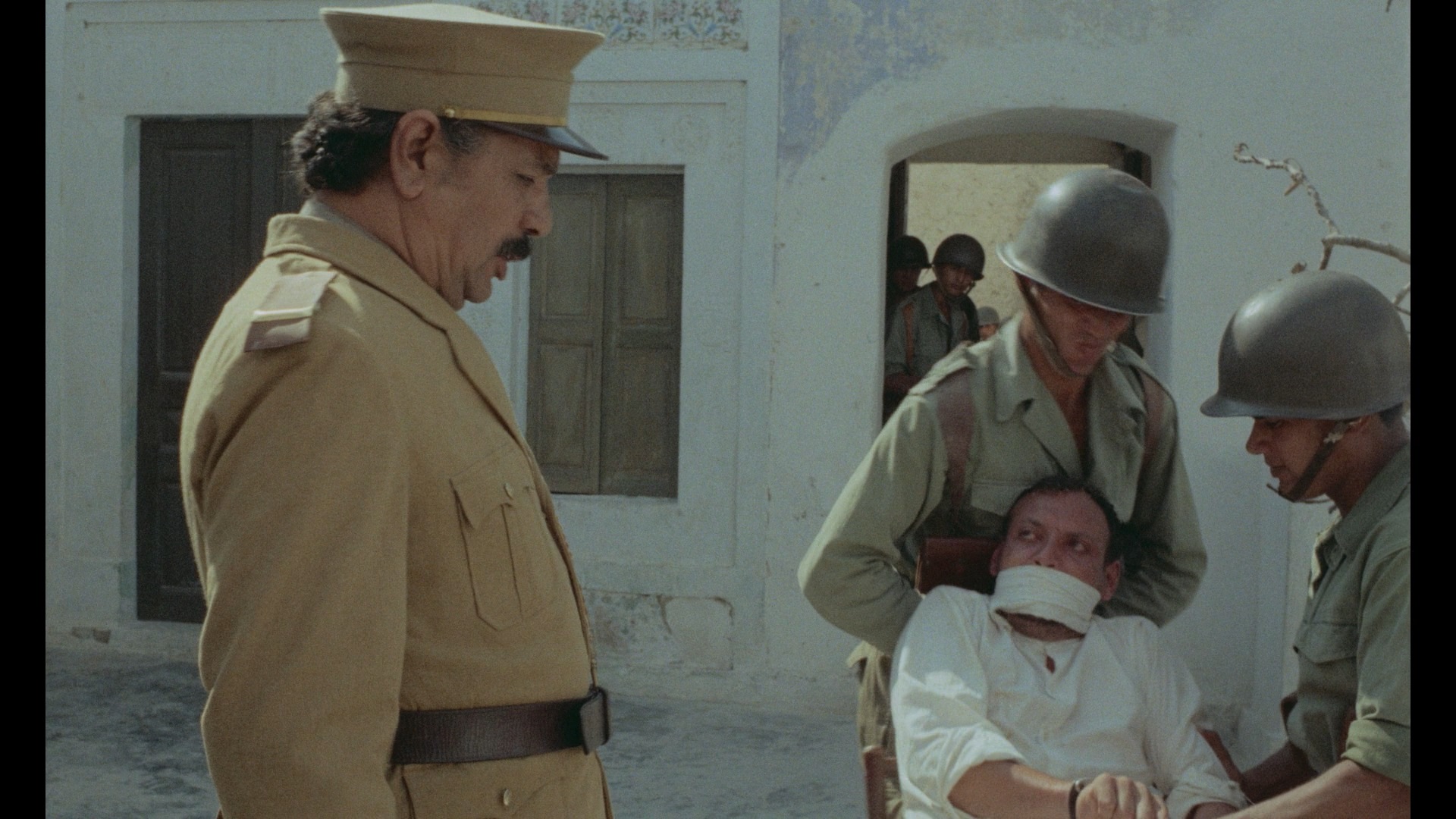 Fernando Arrabal, an artistic renaissance man who began his film career with Viva la Muerte, a French-Tunisian project based on his autobiographical novel, Baal Babylone. The result is one of the strongest films in the 1970s surrealist movement, fit to be shown in art house theaters but packed with some of the more extreme imagery outside of an Italian cannibal film.
Fernando Arrabal, an artistic renaissance man who began his film career with Viva la Muerte, a French-Tunisian project based on his autobiographical novel, Baal Babylone. The result is one of the strongest films in the 1970s surrealist movement, fit to be shown in art house theaters but packed with some of the more extreme imagery outside of an Italian cannibal film.
During the Spanish Civil War, young Fando (Chaouch) lives with his protective mother (Espert) and, due to his arrest of his father, endures the taunts of his schoolmates. Though he loves his mother, Fando begins to indulge in bizarre, sadistic fantasies when he suspects that his father did not kill himself in prison as she claims. In fact, as a discovered letter proves, she herself may have been responsible for his sorry fate. Fando begins to experience perilous health problems as the line between fantasy and reality begins to blur, and his reveries become increasingly violent and depraved.
A technically 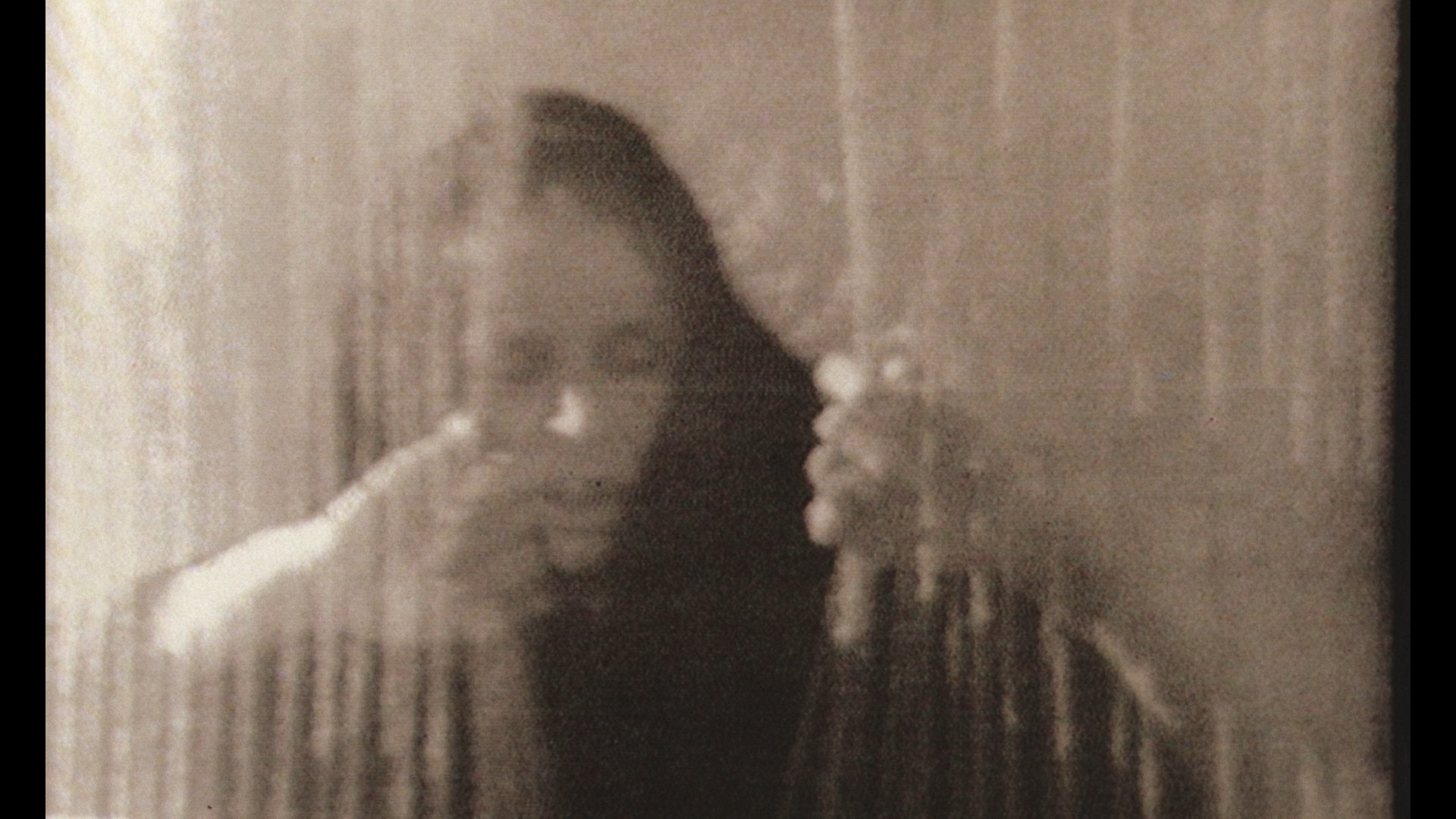 fascinating film, Viva la Muerte! (Long Live Death!) features a credit sequence designed over Topor's Boschian pen and ink drawings of sexual torture,
fascinating film, Viva la Muerte! (Long Live Death!) features a credit sequence designed over Topor's Boschian pen and ink drawings of sexual torture, 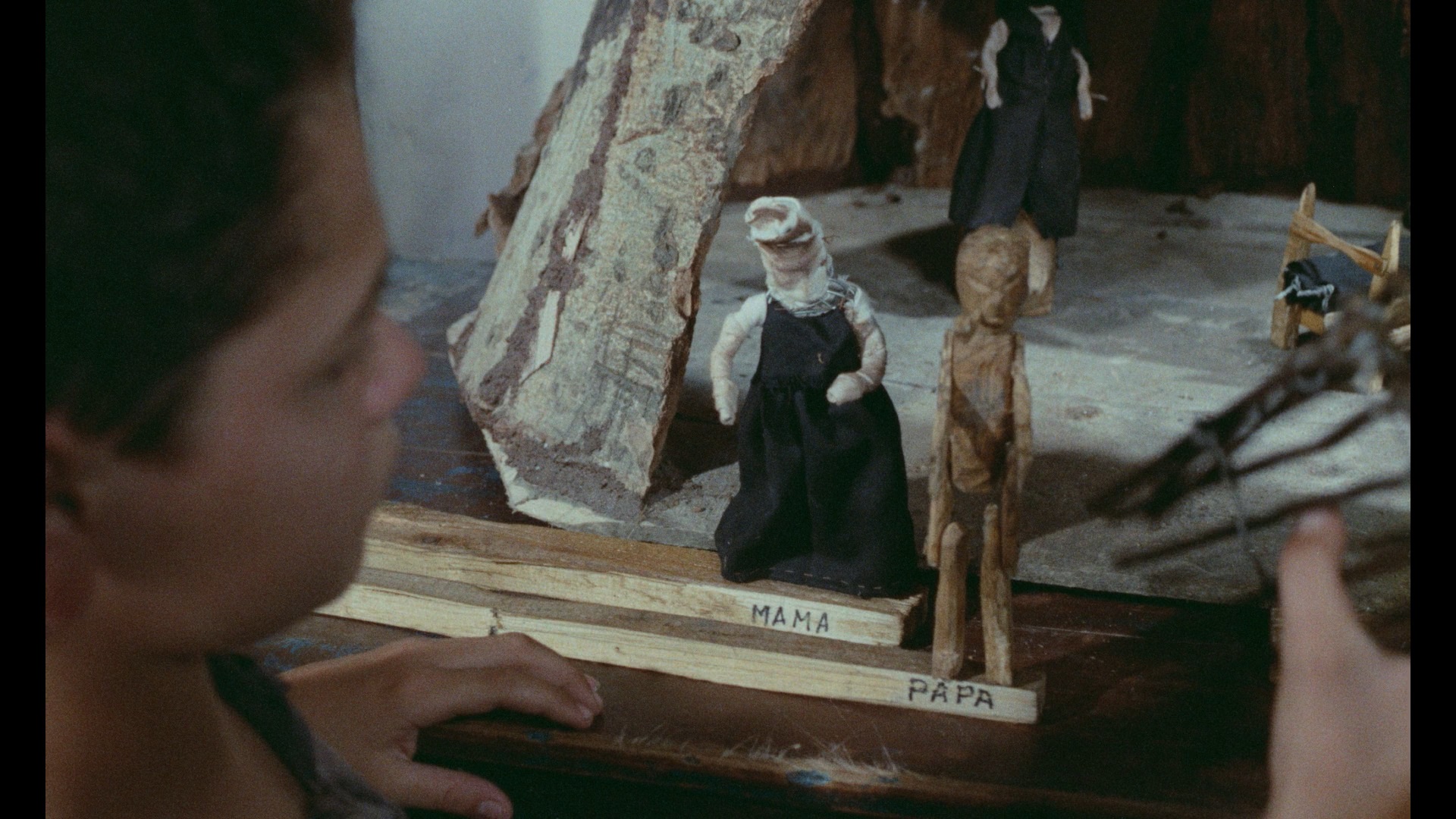 with the body of the film mixing beautifully shot 35mm ("real life") and videotaped footage processed to film and chromatically manipulated (the fantasies), with a little scratchy, real-life surgery footage thrown in at the end for good measure. Arrabal's film would probably make a good double bill with either Spirit of the Beehive or The Reflecting Skin, though the harsh nature of its content will probably limit its appeal to viewers with iron stomachs. Though the human brutality is fairly stylized (human line-ups are gunned down mostly out of frame, eyes are gouged out via jump cuts), the occasional animal brutality is definitely real and provides some of the most upsetting moments: Fando casually slicing up a beetle at his school desk, a lizard's head bitten off at the moment of a woman's sexual climax, and most memorably, a cow's protracted slaughter transformed into a bizarre, surrealist tableau with an actor stitched inside the carcass.
with the body of the film mixing beautifully shot 35mm ("real life") and videotaped footage processed to film and chromatically manipulated (the fantasies), with a little scratchy, real-life surgery footage thrown in at the end for good measure. Arrabal's film would probably make a good double bill with either Spirit of the Beehive or The Reflecting Skin, though the harsh nature of its content will probably limit its appeal to viewers with iron stomachs. Though the human brutality is fairly stylized (human line-ups are gunned down mostly out of frame, eyes are gouged out via jump cuts), the occasional animal brutality is definitely real and provides some of the most upsetting moments: Fando casually slicing up a beetle at his school desk, a lizard's head bitten off at the moment of a woman's sexual climax, and most memorably, a cow's protracted slaughter transformed into a bizarre, surrealist tableau with an actor stitched inside the carcass.
Cult Epics' DVD release in 2007 marked a welcome opportunity after years of unavailability to finally see this often discussed but rarely seen oddity, which still packs a punch decades after the fall of Franco. The anamorphically enhanced video quality was very good at the time apart from the deliberately dupey-looking video sequences. The soundtrack was originally recorded in French (with some dialogue still looped later judging from the erratic audio quality), so that first audio option is preferable (with optional English subtitles); however, the dubbed Spanish track is also included for reference. The disc also includes a bizarre 17m47s interview with Arrabal (in French with optional English subtitles), in which he punctuates his comments by holding up a chair in artistic poses, then later removing his shoe, sniffing it, and observing, "My feet smell good." The offscreen interviewer does not seem to concur, however. In between he offers a thumbnail history of the Panic Movement, argues that his film is not violent or extreme, and explains his own artistic agenda in sometimes rambling detail. It's quite a supplement, to say the least. The DVD also contains a French lobby card gallery, a jaw-dropping trailer for Arrabal's second film, I Will Walk Like a Crazy Horse, and an informative insert 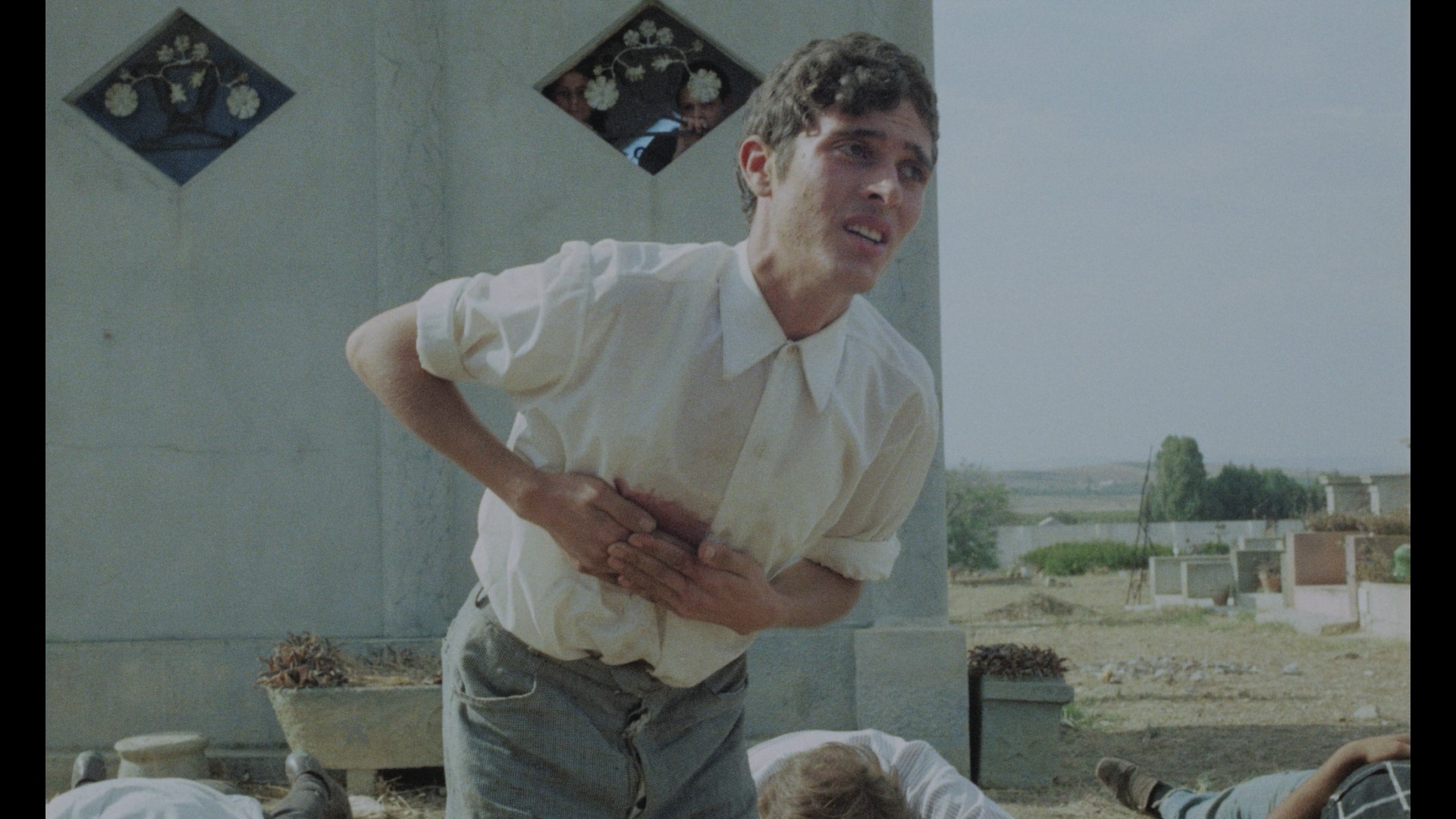 essay by Shock Cinema's Rayo Casblanca. Subsequent DVDs turned
essay by Shock Cinema's Rayo Casblanca. Subsequent DVDs turned 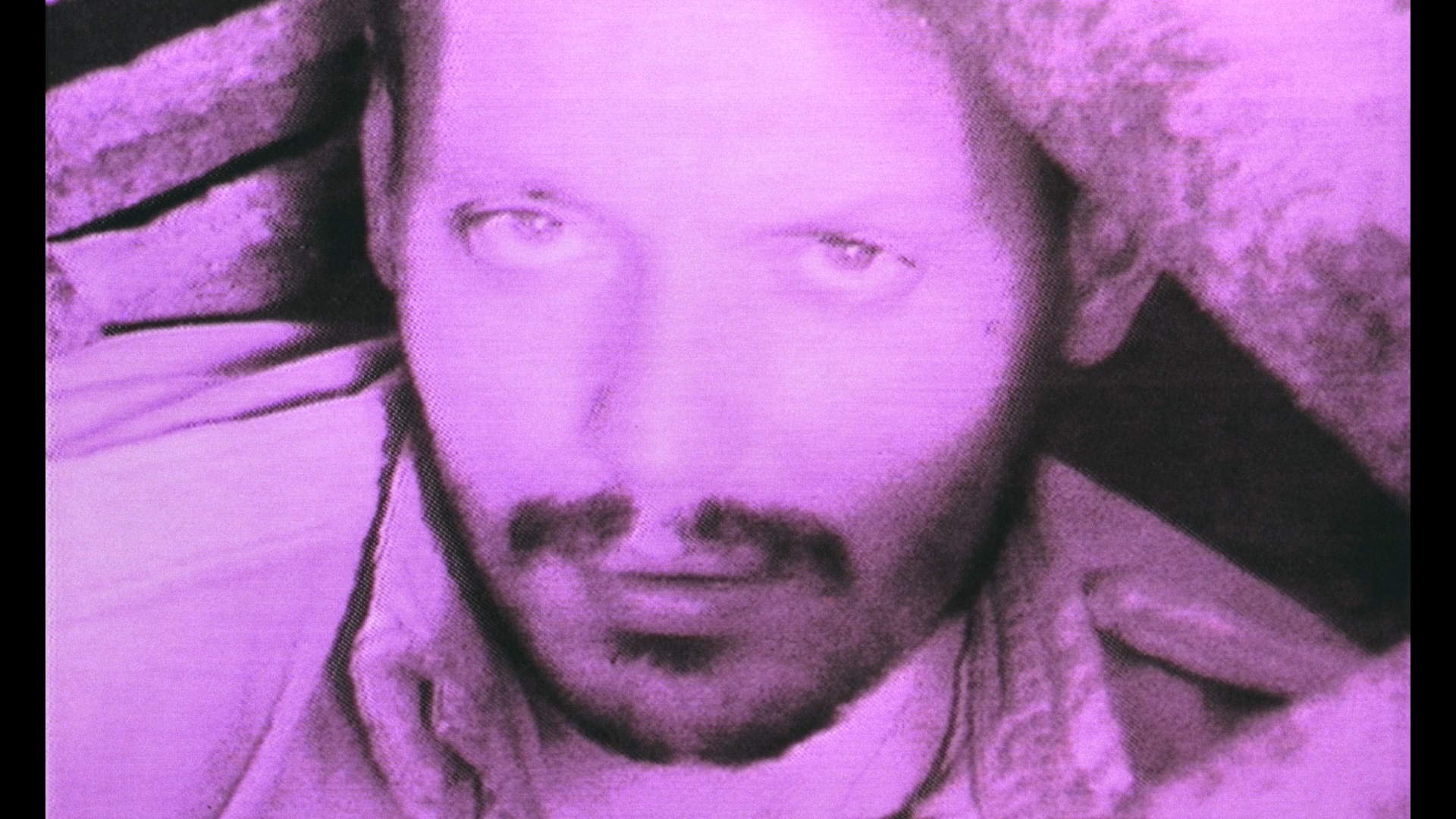 up all the way to 2013 around the world, taken from the same master.
up all the way to 2013 around the world, taken from the same master.
In 2024, Radiance Films bowed the film on Blu-ray in the U.S. and U.K. featuring a new 4K restoration from the original 35mm negative by the Cinémathèque Toulouse in collaboration with Arrabal. Not surprisingly, it's a significant improvement with quite a bit more image info, finer detail, and better color timing with less of an orange cast and, most importantly, pure reds. This presentation also reveals that the earlier disc was from a PAL master without time conversion, running faster at 86m3s. The memorable drawn credit sequence is now present at the end here instead of the beginning, presumably something corrected by Arrabal himself. The LPCM 2.0 mono French audio sounds excellent and features optional English subtitles. The film can also be played with a 2020 episode of the Project Booth podcast featuring Mike White, Heather Drain and Jess Byard chatting for 66 minutes about Arrabal, recurring themes in his work (especially childlike innocence colliding with the mundane cruelty of the world), the ties to other filmmakers, and the treatment of extreme imagery and subject matter. Sur les traces de Baal -(19m25s) is a short documentary by Abdellatif Ben Ammar covering the making of the film, showing how several sequences were shot accompanied by interview voiceover and atonal music. This one has also been beautifully restored and looks great, with optional English subtitles provided. The feature-length VIDARRABAL (99m36s) by Xavier Pasturel Barron was previously issued as a standalone DVD in France in 2011, following the filmmaker himself on a journey into his past, his artistic inspirations, and his peculiar fate in Spain where he was forbidden reentry after the death of Generalissimo Franco along with four political radicals. French scholars and colleagues are also interviewed along the way, offering a thorough portrait of what makes Arrabal's work essential. Finally you get a new interview with scholar and Spanish cinema expect David Archibald (20m58s) about Arrabal's life before this film, the political concerns of his work and this one in particular, and the real-life events of the Spanish Civil War and other turmoil that helps provide context for what we see in Arrabal's filmography. Also included are the usual trailer, a French photo gallery, and an insert booklet with an essay by Sabina Stent and an archival interview with the director.


 Alejandro Jodorowsky (El Topo) and animator Roland Topor (Fantastic Planet), the short-lived but scandalous "Panic Movement" in Mexico and Europe was begun by
Alejandro Jodorowsky (El Topo) and animator Roland Topor (Fantastic Planet), the short-lived but scandalous "Panic Movement" in Mexico and Europe was begun by  Fernando Arrabal, an artistic renaissance man who began his film career with Viva la Muerte, a French-Tunisian project based on his autobiographical novel, Baal Babylone. The result is one of the strongest films in the 1970s surrealist movement, fit to be shown in art house theaters but packed with some of the more extreme imagery outside of an Italian cannibal film.
Fernando Arrabal, an artistic renaissance man who began his film career with Viva la Muerte, a French-Tunisian project based on his autobiographical novel, Baal Babylone. The result is one of the strongest films in the 1970s surrealist movement, fit to be shown in art house theaters but packed with some of the more extreme imagery outside of an Italian cannibal film. fascinating film, Viva la Muerte! (Long Live Death!) features a credit sequence designed over Topor's Boschian pen and ink drawings of sexual torture,
fascinating film, Viva la Muerte! (Long Live Death!) features a credit sequence designed over Topor's Boschian pen and ink drawings of sexual torture,  with the body of the film mixing beautifully shot 35mm ("real life") and videotaped footage processed to film and chromatically manipulated (the fantasies), with a little scratchy, real-life surgery footage thrown in at the end for good measure. Arrabal's film would probably make a good double bill with either Spirit of the Beehive or The Reflecting Skin, though the harsh nature of its content will probably limit its appeal to viewers with iron stomachs. Though the human brutality is fairly stylized (human line-ups are gunned down mostly out of frame, eyes are gouged out via jump cuts), the occasional animal brutality is definitely real and provides some of the most upsetting moments: Fando casually slicing up a beetle at his school desk, a lizard's head bitten off at the moment of a woman's sexual climax, and most memorably, a cow's protracted slaughter transformed into a bizarre, surrealist tableau with an actor stitched inside the carcass.
with the body of the film mixing beautifully shot 35mm ("real life") and videotaped footage processed to film and chromatically manipulated (the fantasies), with a little scratchy, real-life surgery footage thrown in at the end for good measure. Arrabal's film would probably make a good double bill with either Spirit of the Beehive or The Reflecting Skin, though the harsh nature of its content will probably limit its appeal to viewers with iron stomachs. Though the human brutality is fairly stylized (human line-ups are gunned down mostly out of frame, eyes are gouged out via jump cuts), the occasional animal brutality is definitely real and provides some of the most upsetting moments: Fando casually slicing up a beetle at his school desk, a lizard's head bitten off at the moment of a woman's sexual climax, and most memorably, a cow's protracted slaughter transformed into a bizarre, surrealist tableau with an actor stitched inside the carcass.  essay by Shock Cinema's Rayo Casblanca. Subsequent DVDs turned
essay by Shock Cinema's Rayo Casblanca. Subsequent DVDs turned  up all the way to 2013 around the world, taken from the same master.
up all the way to 2013 around the world, taken from the same master.